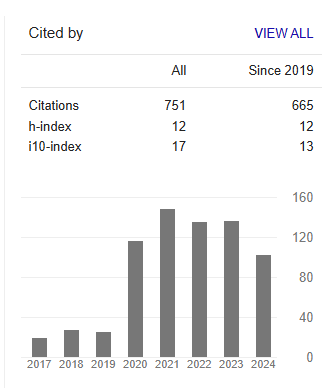Nondisclosure of HIV-Positive Status: A Cross-Sectional Survey in the Greater Accra Region of Ghana
Abstract
Ebenezer Quayson, Elsie Afful-Mensah, Phyllis Odoi, Joyce Boahemaa and Deborah Ntriwaa Amoako-Mensah
In Ghana's Greater Accra Region, the number of people who disclose their HIV-positive status is alarmingly low. This could be due to various socioeconomic factors. However, ignoring this issue could pose a significant risk to public health. Therefore, a study was conducted to determine the factors that contribute to the failure to disclose HIV-positive status among HIV patients living in the La Nkwantanan Madina Metropolis of the Greater Accra Region.
A quantitative cross-sectional study was carried out, using a convenient sampling technique to select 376 clients who tested positive for HIV and sought healthcare services within the La Nkwantanang Madina Municipality. The data was gathered through a closed-ended questionnaire and analyzed using frequency and percentage, correlation coefficient, and multinomial regression.
Marriage strongly predicted (OR=9.923 [95% CI: 1.289-76.411]; p=0.028) HIV-positive nondisclosure to partners; female gender (OR=8.178 [95% CI: 1.048-63.830]; p=0.045) and public sector of employment (OR=8.786 [1.631-47.338]; p=0.011) predicted HIV-positive nondisclosure to family; and marriage (OR=6.458 [95% CI: 0.564-20.716]; p=0.042), public sector of employment (OR=8.000 [95% CI: 1.140-50.132]; p=0.036) and private sector work (OR=7.943 [1.304- 48.392]; p=0.025) strongly predicted HIV-positive nondisclosure to friends.
Marriage, female gender, and sector of work were strong predictors of HIV non-disclosure by people living with HIV in the La Nkwantanan Madina Metropolis.



